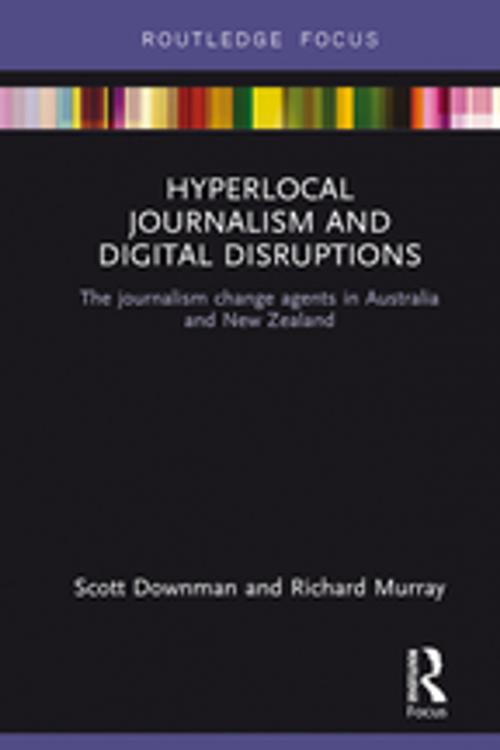Hyperlocal Journalism and Digital Disruptions
The journalism change agents in Australia and New Zealand
Nonfiction, Social & Cultural Studies, Social Science| Author: | Scott Downman, Richard Murray | ISBN: | 9781351698443 |
| Publisher: | Taylor and Francis | Publication: | October 2, 2017 |
| Imprint: | Routledge | Language: | English |
| Author: | Scott Downman, Richard Murray |
| ISBN: | 9781351698443 |
| Publisher: | Taylor and Francis |
| Publication: | October 2, 2017 |
| Imprint: | Routledge |
| Language: | English |
At a time when digital technologies are impacting on the success and sustainability of traditional models of journalism, hyperlocal journalism seeks to restore journalistic integrity, build community, incite change and engage audiences. This book argues for the increased importance of these new forms of localized reporting in the digital age.
Hyperlocal Journalism and Digital Disruptions begins with the fundamental question of what hyperlocal journalism is, then focuses on three case studies which illustrate its potential to thrive when the right balance is struck between audience engagement, investment and respect. Each case study examines a different start-up in Australia and New Zealand. Although the notion of hyperlocal journalism is not new, the ways in which these regionalized stories are now being told has evolved. This book demonstrates the increased necessity for tailored approaches to creating and providing hyperlocal journalism in order to engage targeted audiences, meet their needs for news and reclaim authenticity and credibility for journalism.
This is a valuable resource for researchers, academics, students and practitioners in the areas of Digital Journalism and Media Studies generally.
At a time when digital technologies are impacting on the success and sustainability of traditional models of journalism, hyperlocal journalism seeks to restore journalistic integrity, build community, incite change and engage audiences. This book argues for the increased importance of these new forms of localized reporting in the digital age.
Hyperlocal Journalism and Digital Disruptions begins with the fundamental question of what hyperlocal journalism is, then focuses on three case studies which illustrate its potential to thrive when the right balance is struck between audience engagement, investment and respect. Each case study examines a different start-up in Australia and New Zealand. Although the notion of hyperlocal journalism is not new, the ways in which these regionalized stories are now being told has evolved. This book demonstrates the increased necessity for tailored approaches to creating and providing hyperlocal journalism in order to engage targeted audiences, meet their needs for news and reclaim authenticity and credibility for journalism.
This is a valuable resource for researchers, academics, students and practitioners in the areas of Digital Journalism and Media Studies generally.















